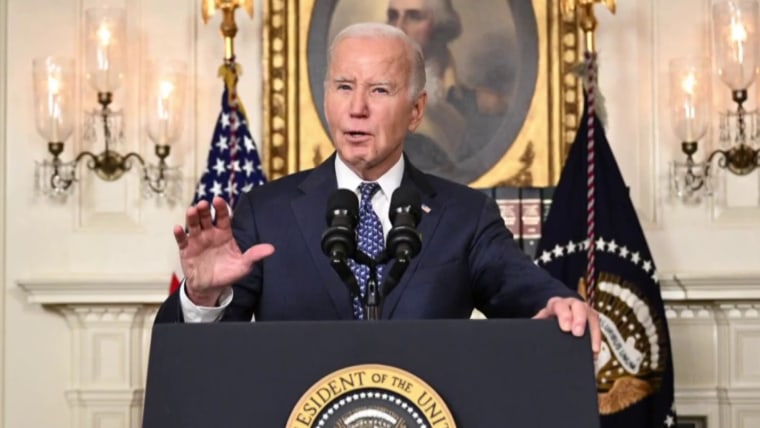The results from Tuesday’s Michigan Democratic primary, where roughly 13% of voters chose “uncommitted,” might as well be a Rorschach test. Those who want to dismiss the vote — largely a protest President Joe Biden’s handling of the Israel-Hamas war — can say the share of uncommitted voters was only slightly above the 11% who voted “uncommitted” in the 2012 Democratic primary, when Barack Obama ran as an incumbent. (Obama won Michigan handily that November.) Those arguing for the protest vote’s significance can argue that the raw number of more than 100,000 uncommitted votes was much bigger than in 2012, a remarkable feat for an organized protest effort only a few weeks old.
But there was no ambiguity on the Republican side: Former President Donald Trump underperformed his polls yet again.
Yes, he easily defeated former South Carolina Gov. Nikki Haley, 68.2% to 26.6%. But pre-election surveys gave Trump an even greater edge of 50 or even 60 percentage points.
There are a number of possible reasons for this pattern, with varying implications for November.
By itself, that discrepancy means little; there’d been few recent polls in Michigan, and primaries are harder to poll than general elections. (In 2016, Sen. Bernie Sanders won the Michigan Democratic primary when every pre-election poll showed Hillary Clinton ahead by 10 to 30%.) However, Michigan marks the fourth consecutive contest in which Trump’s final margin has fallen short of pre-contest polling averages. In Iowa, polling averages projected a 34% margin over the second-place. The actual result? Under 30%. In New Hampshire, an 18-point margin became an 11-point win. In South Carolina, a 28-point margin became a 20-point win.
There are a number of possible reasons for this pattern, with varying implications for November. Perhaps these are mere polling errors, though four contests in a row with the same error begins to stretch that explanation. Perhaps more Democrats and anti-Trump independents voted in the GOP contests than expected, a crossover effect that would not show up in the fall. Or perhaps the polls are getting the makeup of the electorate wrong — and overestimating the share of pro-Trump voters.
Democrats certainly hope the last of those reasons is correct, but there’s no way to tell whether Trump’s underperformance means anything for November. Yet, there are clear takeaways. First, if pundits and reporters are going to highlight doubts over President Biden’s position going into the fall, then they should also talk more about Trump’s struggles. Imagine the narrative if Biden faced a challenger who ran him close in two of the first four contests, outraised him in January and continues to receive hundreds of thousands of — in effect — protest ballots, even as the challenger admits she stands no chance of winning the primary.

We should also commend the protest votes, whether they’re against Trump or Biden. Anti-Trump voters in the Republican primary were demanding better from the GOP, i.e., a nominee who isn’t facing 91 counts in four different criminal cases, who didn’t bungle the pandemic response at the cost tens of thousands of lives and who doesn’t promise to be a dictator on “Day 1.” On the other side, Tuesday was “uncommitted” voters’ best chance to express their views on Biden’s Gaza policy and to make the case he should listen to them more. Those voters were “engaging in essential acts of democracy,” as The Washington Post’s Perry Bacon noted Tuesday, no different than any other party primary. That only one of the two likely nominees shows any interest in democracy makes such protests all the more poignant.
Ever since Trump’s surprising 2016 victory, falling backward into an Electoral College majority when he expected to lose, many Republicans, pundits and even some Democrats have treated Trump’s support as perpetually underestimated. But as Seth Masket and Julia Azari observed earlier this week, “Trump has never commanded a national majority, not in polls nor at the ballot box.” Neither he nor his campaign evince any interest in addressing his perpetually low ceiling. The party infrastructure is in tatters, with the Republican National Committee possibly putting itself on the hook for Trump’s legal bills. Abortion, its weakest issue in recent elections, remains a liability, as last week’s Alabama Supreme Court ruling against IVF demonstrated. Add to all that the consistent underperformances at the polls, and the alarm bells, for Republicans at least, go from muted to blaring.

